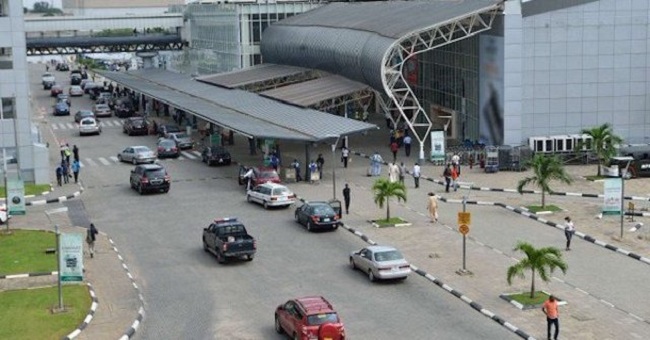How Protectionists Policies Drive Aviation Growth, By Experts
Unless the government puts in place policies to protect indigenous carriers, the growth of the sector will remain elusive, experts have said.
The enunciation of such policies the experts said must be a deliberate initiative conceived to create an enabling environment for domestic carriers and other players in the sector to drive.
The experts namely : Managing Director , Topbrass Aviation, Captain Roland Iyayi ; President Sabre Travel Network, Dr Gbenga Olowo ; Chief Executive Officer , African Aviation Services Limited, Mr Nick Fadugba ; and Managing Director, Medview Airlines , Alhaji Muneer Bankole spoke at the 23rd edition of the Airport & Aviation Correspondent Conference that held recently in Lagos.
Iyayi said the absence of good policies has stunted the growth of the aviation sector. He said government needed to put in place protectionist policies that will reduce the burden of indigenous carriers, which were already buffeted by multiple aeronautical charges; high cost of aviation fuel; obsolete and inadequate airport facilities.
Rather, Iyayi said the NCAA was engaged in over-regulation of domestic carriers.
He said the NCAA should be actively involved in the drawing the template for negotiation of air treaties for the country to protect it from exploitation by foreign countries and their carriers.
Iyayi said:” To grow aviation there has to be a deliberate policy geared towards ensuring that airlines which are primary players in the industry can survive. That you have airlines failing is not because that cannot run the business, it is the environment in which they operate is extremely harsh and not conducive for growth.
” Essentially the government needs to be proactive by looking beyond cost recovery for its agencies, but design a framework of policies that will address the multiplicity of charges affecting domestic carriers .”
On his part, Olowo said government put in strategies that will drive policies geared towards investor confidence by focussing on tangible assets in the industry.
He said the policy trust of government for the aviation sector should factor ways and means to improve service delivery at airports; improvement of safety and security; stakeholders and consumer satisfaction.
Olowo said any policy that does not have key performance indicators to measure their effectiveness will be counterproductive.
Also speaking, Fadugba corroborated their position saying any policy that does not factor in ways to protect indigenous carriers will not guarantee industry growth.
He, therefore, canvassed a working document christened Vision 2030 hinged on the need to conceive deliberate policies that will
bring about stronger indigenous carriers; modern airport and airspace infrastructure as well as adequate regulatory and legal framework to protect private investment.
Fadugba said the aviation sector if well positioned could serve as a vital catalyst for Africa’s economic growth and social advancement.
He said Africa needs a safe, reliable, efficient and portable air transport industry that facilitates business, trade, and tourism across the continent and between Africa and the world.
Fadugba identifying the challenges said aviation safety, security, training, regulatory oversight, infrastructure, liberalisation, modernisation, funding, efficiency, affordability, and profitability all need to be improved significantly.
He said a situation in which over 90 percent of international air traffic to and from Nigeria is carried by non-Nigerian airlines is damaging to the economy in several ways, such as the huge capital flight from Nigeria, the continued deterioration of the Nigerian aviation industry and the loss of skilled aviation employment opportunities.
He supported the federal government’s plan to launch a new national carrier with minority government shareholding if it is one transparently and skilfully established.
To succeed, he said the new national carrier needs a sound business plan, strategic industry partners, adequate funding, an experienced management team, well-trained staff, a fleet of modern aircraft, a comprehensive route network, on-time performance, good customer service, and no government involvement.
He recommended that African governments and regulators need to provide an enabling environment, while African airlines should work together through inter-lining, codesharing, joint ventures and mergers and acquisitions so as to form stronger carriers that can compete effectively and can grow and prosper.
Also speaking, industry analyst Mr. Chris Aligbe urged Nigerian carriers to enlist in the African Airline’s Association ( AFRAA) to enable them to push for international aero politics for the protection of indigenous carriers.




